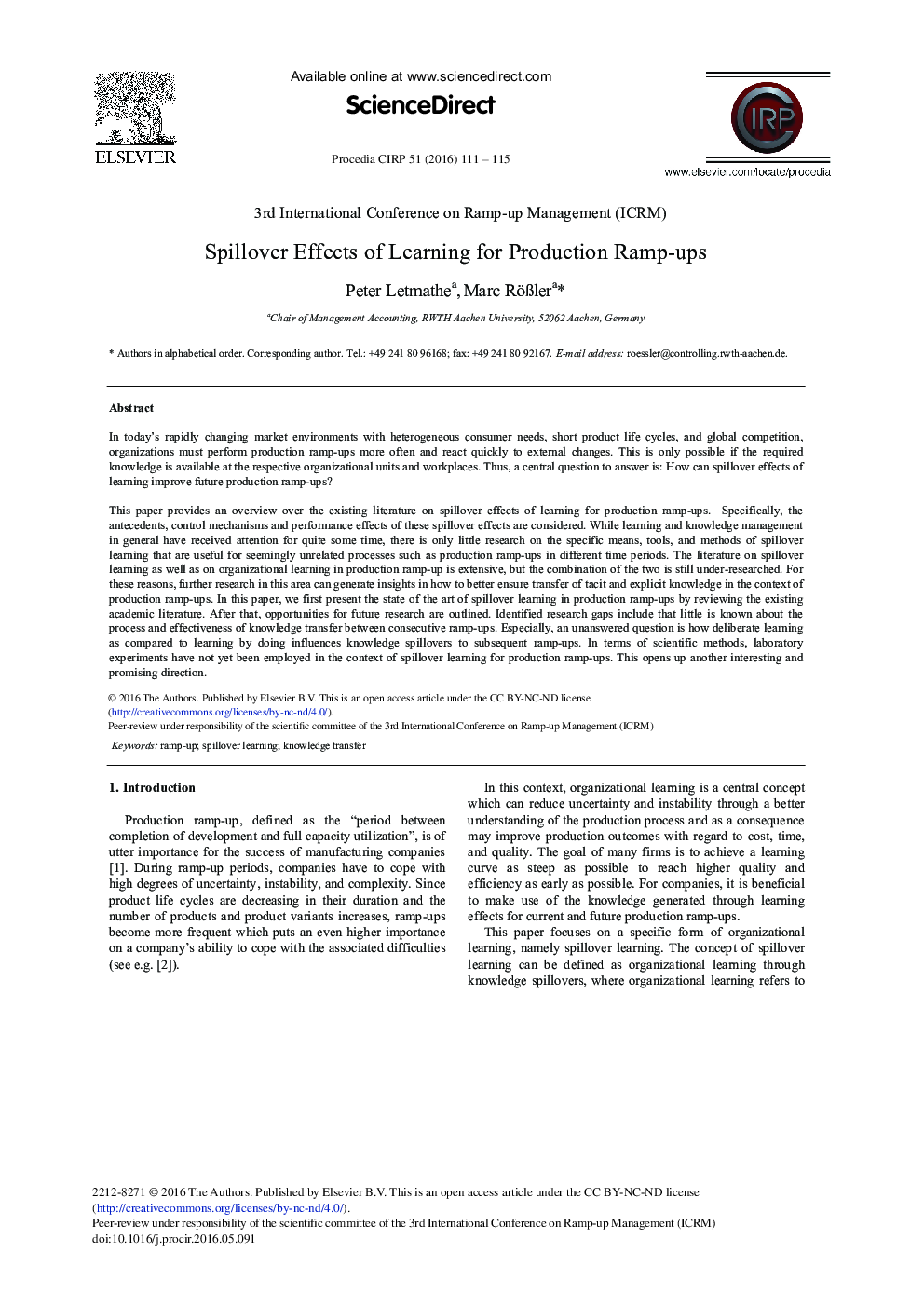| Article ID | Journal | Published Year | Pages | File Type |
|---|---|---|---|---|
| 1698108 | Procedia CIRP | 2016 | 5 Pages |
In today's rapidly changing market environments with heterogeneous consumer needs, short product life cycles, and global competition, organizations must perform production ramp-ups more often and react quickly to external changes. This is only possible if the required knowledge is available at the respective organizational units and workplaces. Thus, a central question to answer is: How can spillover effects of learning improve future production ramp-ups?This paper provides an overview over the existing literature on spillover effects of learning for production ramp-ups. Specifically, the antecedents, control mechanisms and performance effects of these spillover effects are considered. While learning and knowledge management in general have received attention for quite some time, there is only little research on the specific means, tools, and methods of spillover learning that are useful for seemingly unrelated processes such as production ramp-ups in different time periods. The literature on spillover learning as well as on organizational learning in production ramp-up is extensive, but the combination of the two is still under-researched. For these reasons, further research in this area can generate insights in how to better ensure transfer of tacit and explicit knowledge in the context of production ramp-ups. In this paper, we first present the state of the art of spillover learning in production ramp-ups by reviewing the existing academic literature. After that, opportunities for future research are outlined. Identified research gaps include that little is known about the process and effectiveness of knowledge transfer between consecutive ramp-ups. Especially, an unanswered question is how deliberate learning as compared to learning by doing influences knowledge spillovers to subsequent ramp-ups. In terms of scientific methods, laboratory experiments have not yet been employed in the context of spillover learning for production ramp-ups. This opens up another interesting and promising direction.
